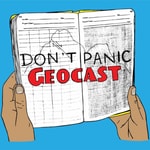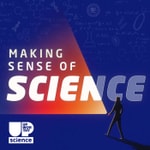Science Magazine Podcast – Détails, épisodes et analyse
Détails du podcast
Informations techniques et générales issues du flux RSS du podcast.


Classements récents
Dernières positions dans les classements Apple Podcasts et Spotify.
Apple Podcasts
🇨🇦 Canada - science
13/08/2025#100🇺🇸 États-Unis - science
13/08/2025#87🇺🇸 États-Unis - science
12/08/2025#79🇨🇦 Canada - science
11/08/2025#54🇺🇸 États-Unis - science
11/08/2025#62🇨🇦 Canada - science
10/08/2025#50🇺🇸 États-Unis - science
10/08/2025#51🇨🇦 Canada - science
09/08/2025#49🇺🇸 États-Unis - science
09/08/2025#45🇺🇸 États-Unis - science
08/08/2025#75
Spotify
Aucun classement récent disponible
Liens partagés entre épisodes et podcasts
Liens présents dans les descriptions d'épisodes et autres podcasts les utilisant également.
See allQualité et score du flux RSS
Évaluation technique de la qualité et de la structure du flux RSS.
See allScore global : 38%
Historique des publications
Répartition mensuelle des publications d'épisodes au fil des années.
Linking long lives with smart brains, and India’s science education is leaning into its history and traditions—but at what cost?
jeudi 5 septembre 2024 • Durée 32:49
A fungus-driven robot, counting snow crabs, and a book on climate capitalism
jeudi 29 août 2024 • Durée 52:44
Targeting crop pests with RNA, the legacy of temporary streams, and the future of money
jeudi 27 juin 2024 • Durée 49:09
Can wolves form close bonds with humans, and termites degrade wood faster as the world warms
jeudi 22 septembre 2022 • Durée 27:44
Testing planetary defenses against asteroids, and building a giant ‘water machine’
jeudi 15 septembre 2022 • Durée 29:11
Why the fight against malaria has stalled in southern Africa, and how to look for signs of life on Mars
jeudi 8 septembre 2022 • Durée 26:02
Using free-floating DNA to find soldiers’ remains, and how people contribute to indoor air chemistry
jeudi 1 septembre 2022 • Durée 42:14
Chasing Arctic cyclones, brain coordination in REM sleep, and a book on seafood in the information age
jeudi 25 août 2022 • Durée 36:35
Monitoring a nearby star’s midlife crisis, and the energetic cost of chewing
jeudi 18 août 2022 • Durée 27:18
Cougars caught killing donkeys in Death Valley, and decoding the nose
jeudi 11 août 2022 • Durée 25:58

